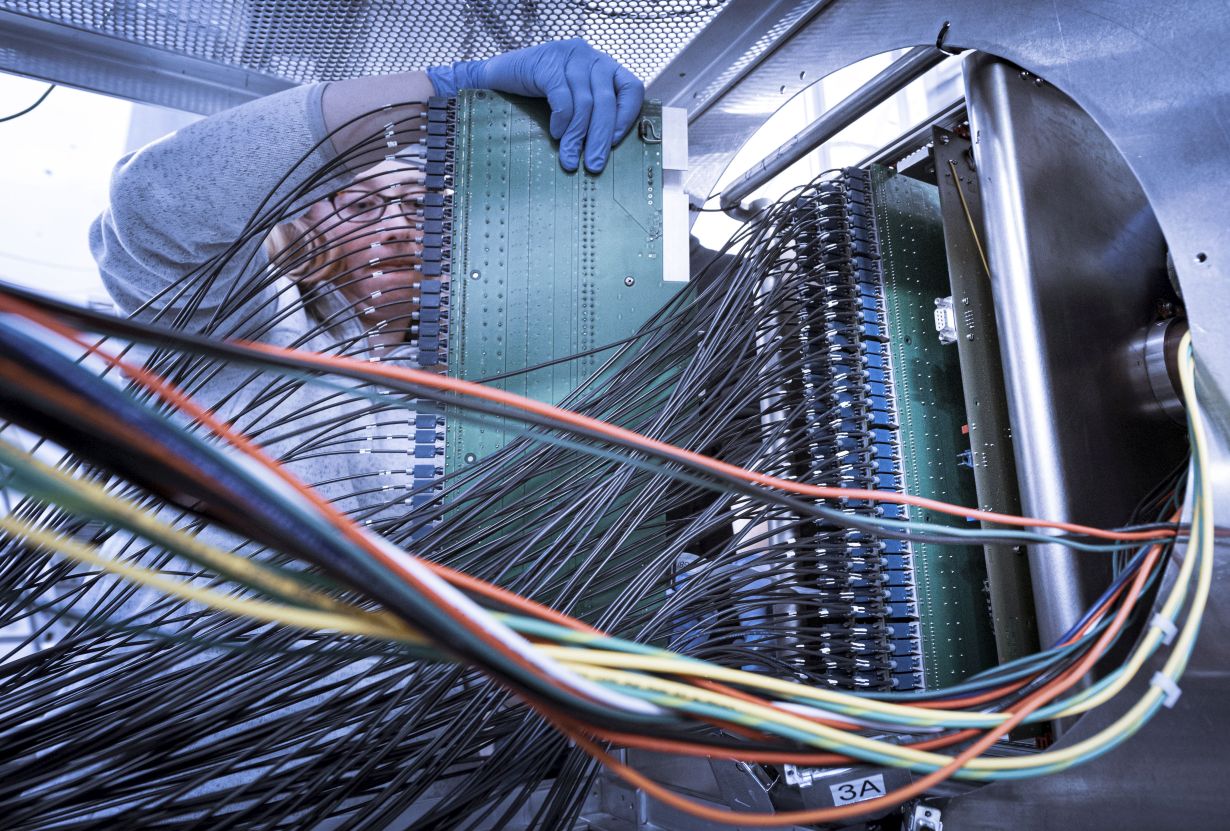Due to digital change, research data is assuming a more and more important role in sciences. In Germany, the Federal Government and the Länder therefore decided in November 2018 to establish a National Research Data Infrastructure (NFDI). The purpose of the NFDI is to systematically exploit sets of data, secure them in the long term, and make them accessible. The key driver will be consortia in which users and providers of research data interact with institutions providing the information infrastructure. Today, the Joint Science Conference (GWK) announced the first nine consortia to receive funding from NFDI. Scientists from the Karlsruhe Institute of Technology (KIT) are involved in three of these consortia.
The three consortia in which the KIT participates, focus on chemistry (NFDI4Chem), engineering sciences (NFDI4Ing), and catalysis-related sciences (NFDI4Cat).
The NFDI4Cat consortium is committed to redefining catalysis research in the digital age and adding new facets to it. The main challenge is to achieve a fundamentally improved understanding of catalysis-related sciences and to create workflows that build a bridge between theory and simulation and experimental studies on catalysts and the related technical aspects. Key elements of this strategy are the standardization of data formats and an understanding of the requirements for creating high-performance information architectures. These enable the storage, exchange, and analysis of data using the most advanced artificial intelligence (AI) tools. KIT participates in NFDI4Cat with a co-spokesperson from the Institute for Chemical Technology and Polymer Chemistry (ITCP). DECHEMA in Frankfurt was responsible for the application.
The vision of NFDI4Chem is the digitization of all important steps in chemical research. It aims to support researchers in their efforts to collect, store, process, analyze, publish, and reuse research data. NFDI4Chem will represent all disciplines of chemistry in the academic field. In the initial phase, it focuses on data related to molecules and reactions, including data for their experimental and theoretical characterization. The KIT participates with two co-spokespersons, the Steinbuch Centre for Computing (SCC) is responsible for the design, together with the Institute of Organic Chemistry (IOC) and the Institute of Biological and Chemical Systems (IBCS). The Friedrich Schiller University of Jena was responsible for the NFDI4Chem application.
NFDI4Ing brings together the engineering research communities and promotes the management of their research data. NFDI4Ing was founded in 2017 and is in close contact with researchers from all engineering disciplines. One of the main objectives is to define and articulate the needs and interests of the engineering community in terms of data use and accessibility. An important challenge here is the large number of sub-disciplines in the engineering sciences and their specific characteristics. KIT participates with two co-spokespersons from the Institute of Applied Materials (IAM) and the Steinbuch Centre for Computing (SCC). The RWTH Aachen was responsible for the NFDI4Ing application.
The Federal Government and the state governments intend to fund up to 30 consortia within the framework of the NFDI. Up to 85 million euros per year will be available for this purpose in the final stage. Three rounds of calls are planned for 2019, 2020, and 2021. In the first round of calls, 22 applications for funding of NFDI consortia were submitted, 9 of which have now been selected. A total of 142 different institutions were involved in the applications, either as applicants or co-applicants. For 2020 and 2021, further rounds of calls are planned. The directorate of the NFDI is located in Karlsruhe by decision of the GWK.
Being “The University in the Helmholtz Association”, KIT creates and imparts knowledge for the society and the environment. It is the objective to make significant contributions to the global challenges in the fields of energy, mobility, and information. For this, about 10,000 employees cooperate in a broad range of disciplines in natural sciences, engineering sciences, economics, and the humanities and social sciences. KIT prepares its 22,800 students for responsible tasks in society, industry, and science by offering research-based study programs. Innovation efforts at KIT build a bridge between important scientific findings and their application for the benefit of society, economic prosperity, and the preservation of our natural basis of life. KIT is one of the German universities of excellence.

